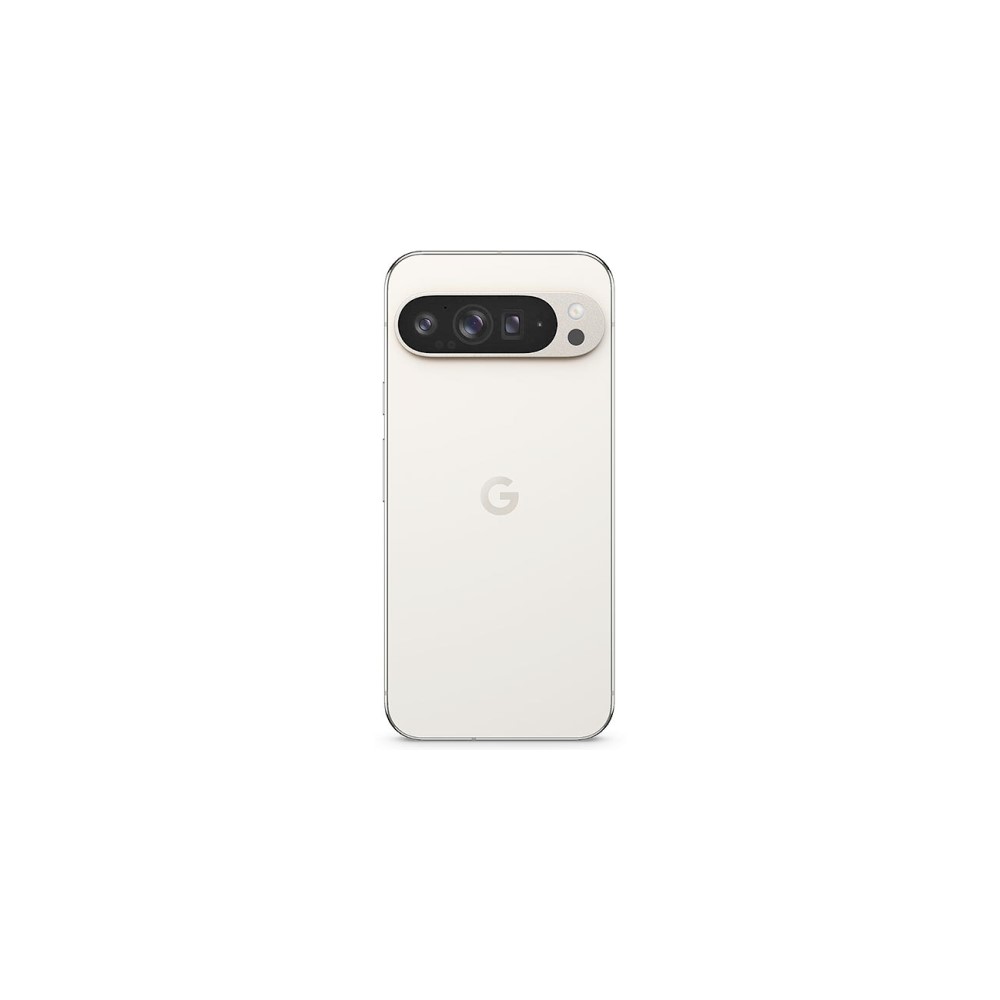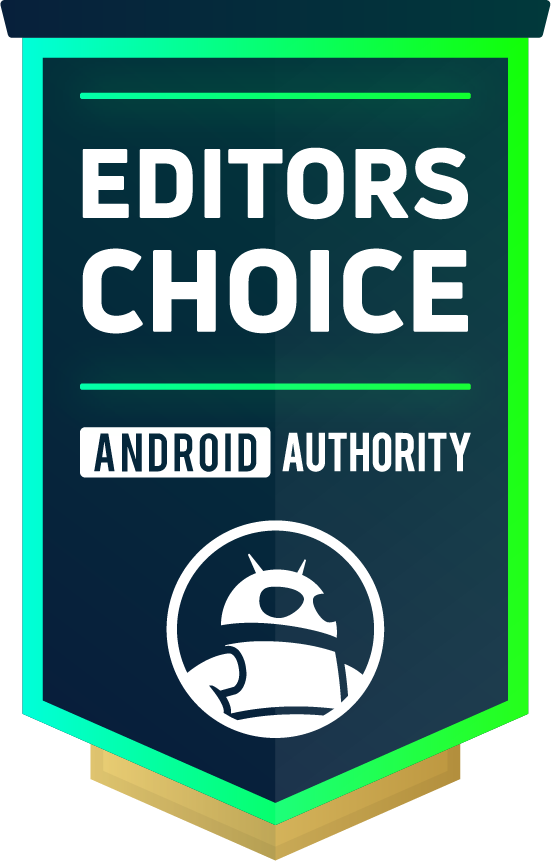Affiliate links on Android Authority may earn us a commission. Learn more.
The Google Pixel 9 Pro XL is my favorite iPhone ever
August 21, 2024
Now that Pixel and iPhone fans are mad at me, I’ll say it again. The Pixel 9 Pro XL is — by far — the best iPhone ever made. Yes, that means it looks and feels more like an iPhone than ever, but I’m not sure that’s a bad thing. Instead of trying to take on a multitude of Android rivals, Google went after the most recognizable phone on the market, and I think it’s beaten Apple at its own game in both hardware and software. Here’s why.
Familiar, but better
If there’s one thing Apple gets right year after year, it’s hardware. No, the iPhone might not change a lot from one generation to the next — maybe just a new glass finish or frame polish — but it always feels sturdy and reliable. You could pick up an iPhone from five years ago or the top-end iPhone 15 Pro Max and immediately know where everything is with your eyes closed.
On the other hand, Google hasn’t put out two perfectly matching Pixels, well, ever. Don’t get me wrong — I’ve been a fan of Google’s camera bar design since it launched on the Pixel 6 series — but I’ve watched it change and evolve over the years as Google has slowly learned what makes a phone comfortable (and enjoyable) to use not just pretty to look at. I’ve seen the curved displays and rounded side rails flatten out, and even the signature camera bar has slowly shifted from a true visor to more of a camera island. The Pixel 9 Pro XL is the finished product of all that learning, and the result is that it feels exactly like an iPhone.
Don’t take my word for it, though — look at the two phones above. Google has almost perfectly recreated the side rails that Apple debuted on its iPhone 15 series, right down to the antenna placements around the edges. Even better, it did so without switching to expensive, smudge-prone titanium, which probably would have bumped its price a few bucks higher. Instead, Google kept the lightweight, recycled aluminum frame that it’s used for a few years, creating a massive Pixel 9 Pro XL that’s far lighter in the hand than it should be. I have to give Google even more credit, too, as I prefer having the power and volume controls on the same side of the phone rather than Apple putting buttons all around.
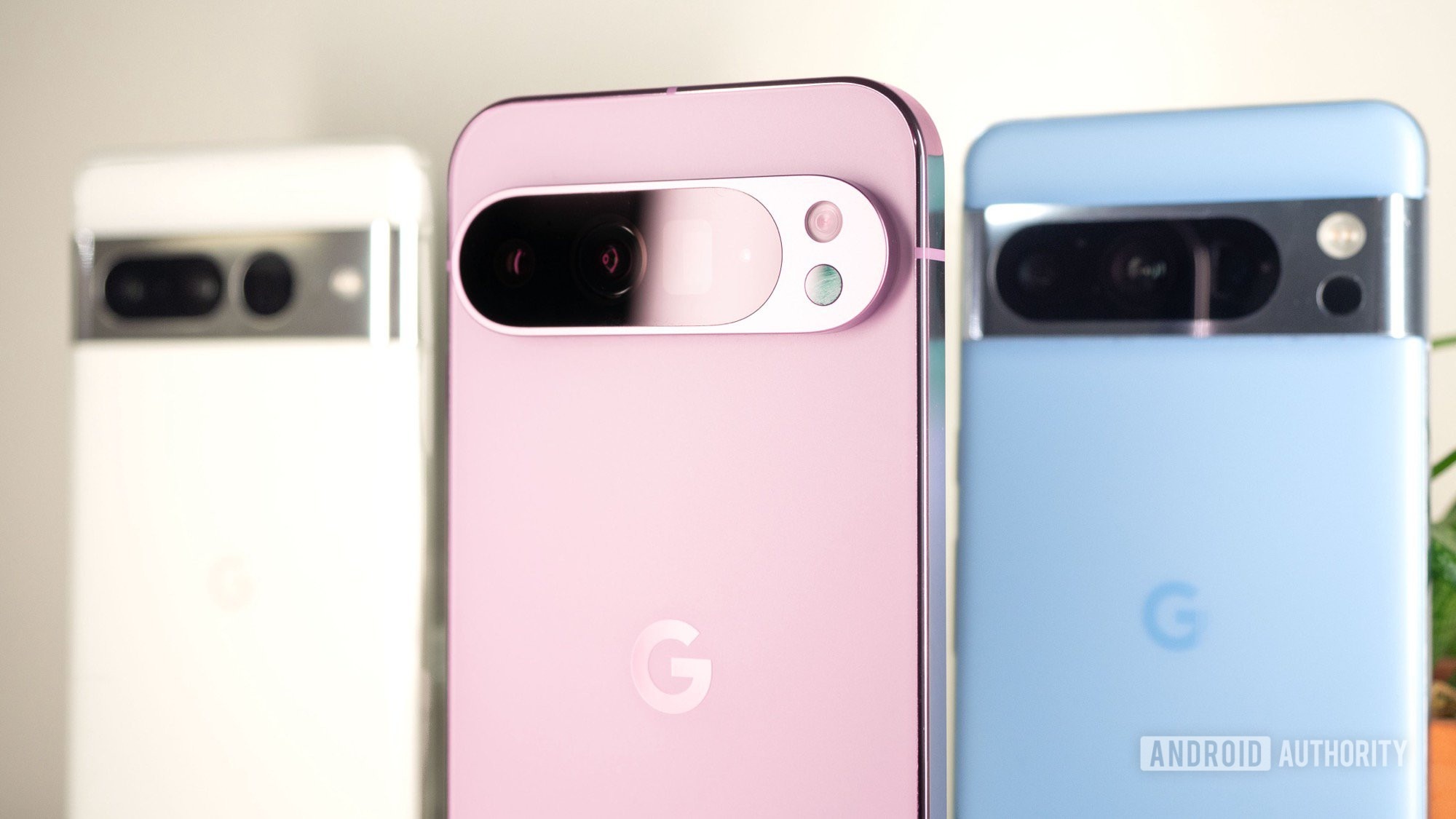
Google’s rear panel of satin-finish Gorilla Glass Victus 2 feels decidedly Apple-like, too — and yes, I know Google had a similar panel on the previous Pixel 8 Pro, but this is different. Whereas that curved piece of glass met the aluminum frame with a rounded edge, the new, flat replacement sits tucked inside the frame, making it harder to accidentally damage an edge. The glass itself has just enough texture to contrast against the high-gloss frame, and Google’s color options, like Hazel and Rose Quartz, are much, much better than a few muted versions of titanium. I’d still like to see the return of a two-tone Pixel, but something tells me that’s no longer an option now that the Pixel 9 Pro XL uses a single panel on the back.
Honestly, it feels like Google started by copying Apple’s homework (which is not usually something I support) but found a way to make it better. I don’t think that every phone should look or feel like an iPhone, but Google managed to pull from Apple’s excellent quality standards while still keeping enough pieces of its personality, like the camera bar and one-sided buttons.
AI that’s actually (mostly) ready
Google isn’t just stealing Apple’s lunch when it comes to a refined design, either. It’s also doing its best to push Apple out of the AI race before it’s even entered. The Cupertino-based brand made a big deal about the launch of its Apple Intelligence beta as part of this year’s WWDC keynote, only for Google to one-up just about everything that Apple is still preparing to launch — and you don’t even need the Pixel 9 Pro XL to get access (though it helps thanks to the free year of Gemini Advanced).
Whether it was a long overdue update to its voice assistant or generative imaging, Google had an answer. Apple touted its new, more conversational Siri, only for Google to launch a similar, interruptable Gemini Live with several different voices to choose from. Apple announced an Image Playground where you can generate images based on text prompts only for Google to push its Pixel Studio, which lets you do the same thing — unless you want to generate humans — but adds the power of Magic Editor to the mix. Apple decided to infuse its writing tools with ChatGPT, Google — well, Google actually skipped that one in favor of letting its Gemini model learn and develop over time.
Google has an answer for every piece of Apple Intelligence, and you don't have to wait for beta access.
It’s not just the fact that Google is ahead in the present stage of AI development, either — it’s been giving users hands-on access for a year at this point. Yes, Apple Intelligence will probably start landing in hands with the launch of the iPhone 16 series, giving it a chance to catch up, but Pixel fans have been able to try things like Magic Editor and Circle to Search for a year or more at this point. Maybe Apple Intelligence will come with faster adoption as iOS 18 rolls out, but it still has a lot of ground to make up on Google in terms of hands-on testing.
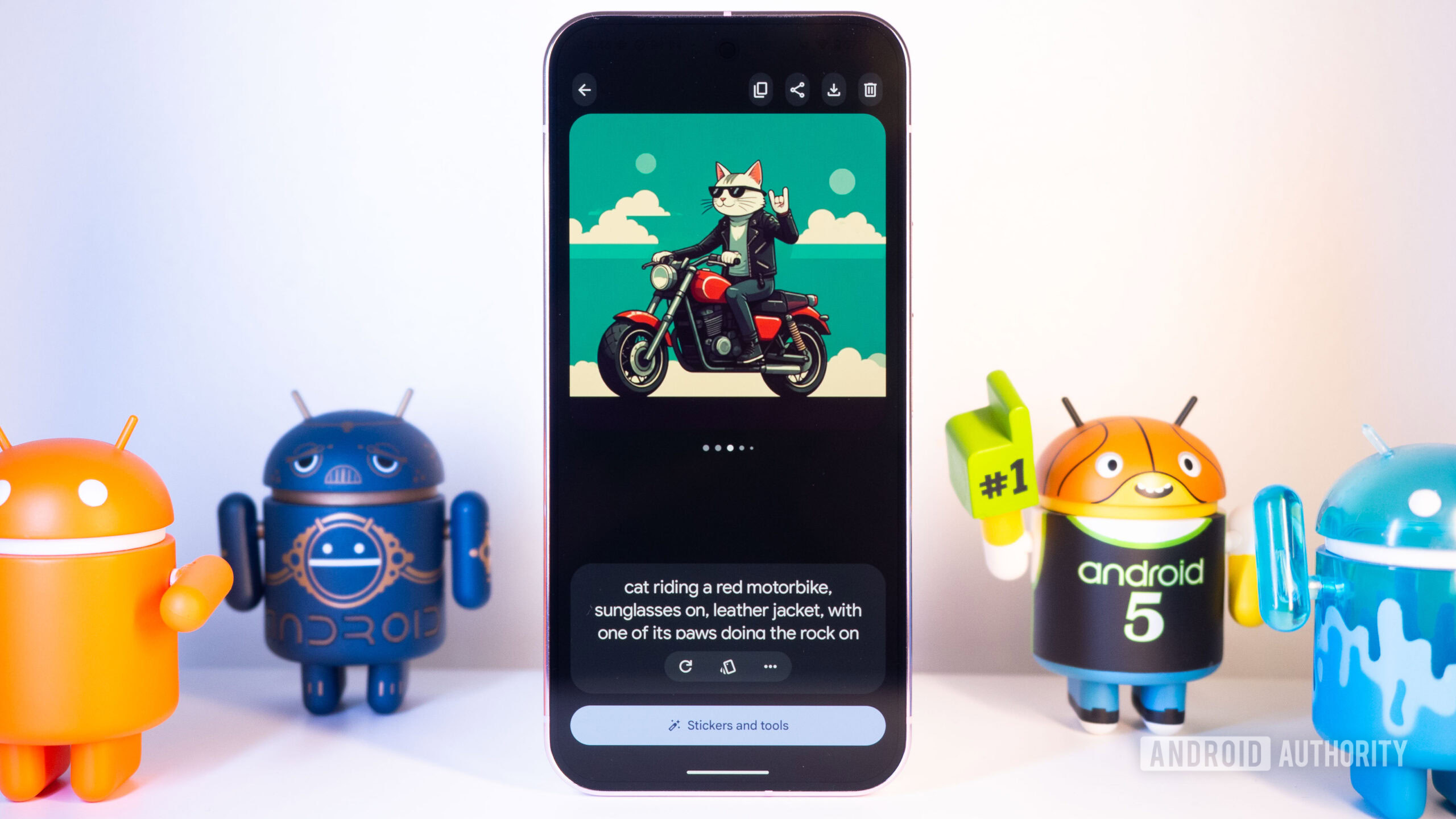
Whether or not Apple Intelligence actually catches up to Gemini, Google has certainly caught up to Apple in what used to be a Cupertino special — software support. The Pixel 9 Pro XL is in line for a full seven years of Pixel Updates, which includes security support, major Android versions, and, of course, feature drops to make the phone feel new for years to come. Now that Google is well into the swing of its in-house Tensor development (a very Apple move, if you ask me), it can stretch its support, giving you more value from a phone that costs less than a comparable iPhone and still offers more room for customization.
Speaking of customization, it feels like iOS has begun to pull features from Android rather than the other way around. Apple finally decided to add color-matched app icons and shift away from apps that always float to the top of your screen, proving that maybe it really can learn from someone outside of its own walled garden. Let’s be real, though — Google’s adaptive color palette is much easier on the eyes than the iOS 18 options that look brighter than a box of crayons.
Coming for the video king
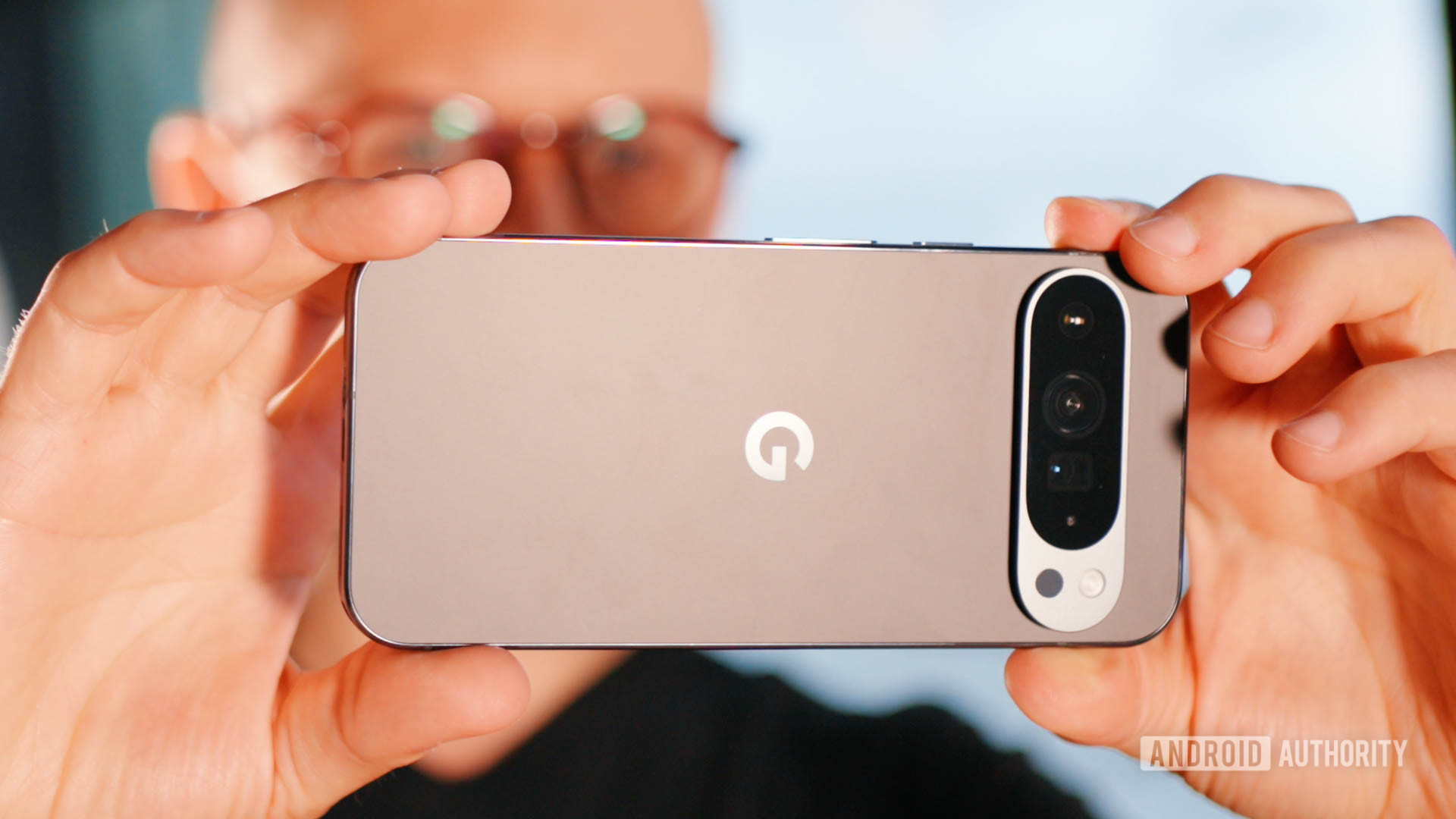
Somehow, Google’s most ambitious move to take on the iPhone has nothing to do with its design or growing lead in AI features. Instead, it might be that Google is after Apple’s videography crown. After all, Pixels are already some of the best camera phones, so why not go for one strength that usually belongs to Apple? And yes, Google’s updated approach to video still involves AI, but there’s more to it than that.
The Pixel 9 Pro XL packs a pretty impressive trio of rear cameras, with a 50MP primary sensor backed by 48MP telephoto and ultrawide options, each relying heavily on the Tensor G4 to push impressive results. They’re still excellent for still images (it’s a Pixel, after all), but the update to Video Boost might be Google’s main difference-maker. This year, Video Boost not only processes your clips to enhance lighting, color, and details, but it’s also capable of upscaling video to 8K resolution. Google’s smaller wrinkles, like Pan and Blur, which slow down your clips for smooth sideways pans and add cinematic bokeh around your subject, are just the icing on top when it comes to native capabilities.
Video Boost might be the best way for Google to take Apple's videography crown.
Now, I’ll admit that I’m more of a quick-post-to-Instagram guy than a spend-hours-editing guy, so I’m not sure I’ll always have the patience for Video Boost. That said, Google’s straight-out-of-camera stabilization is remarkable, so I don’t think it’ll be a big deal to save Video Boost for special occasions.
Apple might also still have a leg up over Google when it comes to editing footage, at least when you want to do it yourself. The Pixel 9 Pro XL doesn’t let you shoot in Log, making it a bit harder to color-grade even when you do send a clip to your laptop. I know Google trusts its Tensor chip to figure out the right colors for your videos, and they’re usually true-to-life, but the ability to manually color-grade later on would make it easier to get a cinematic feel out of some shots.
Even still, I think the Pixel 9 Pro XL is the best Android phone for shooting videos right now. It has the right blend of excellent hardware and Tensor-assisted software to create clips that are ready to publish right away while also polishing your files for later use. I’ll have plenty of images and clips to share later as part of our full Pixel 9 Pro XL review, too, so stay tuned.
Which would you rather buy: The Pixel 9 Pro XL or the iPhone 15 Pro Max?
Google made an iPhone, and I couldn’t be happier
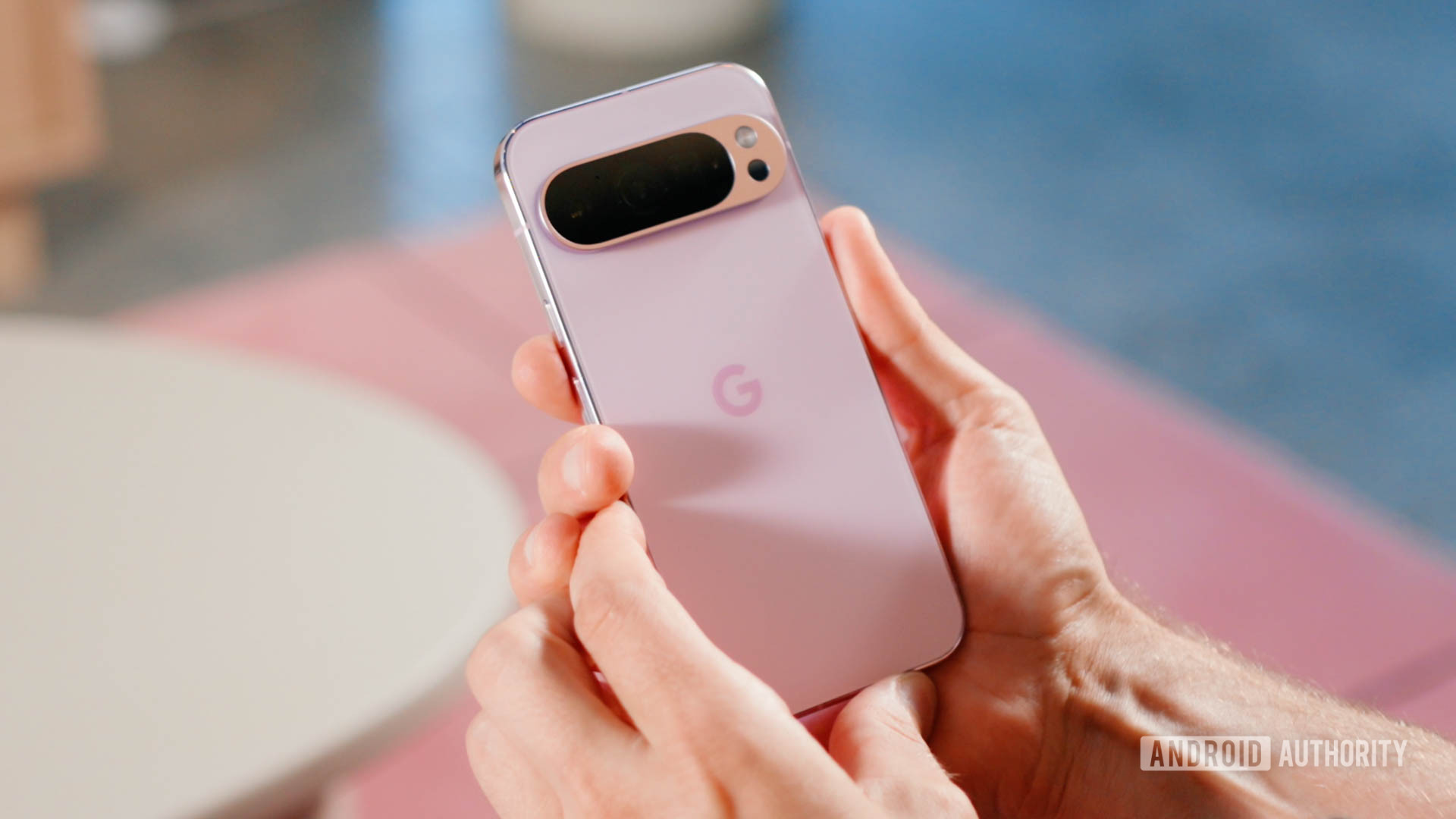
So, has anyone calmed down yet about the fact that I think Google made a pretty excellent iPhone? No? Some of you are still yelling at your phones that maybe I should just buy an iPhone instead if I like it so much? I tried to explain myself as best I could, but I stand by my point. In many ways, the Pixel 9 Pro XL and Pixel 9 Pro are everything I like about an iPhone, combined with the best thing of all — they aren’t iPhones. I’m a Pixel guy all the way down, but I still respect many of the things that Apple does.
Simply put, the iPhone works, and it works incredibly well. The hardware always feels good, the apps are always well-optimized, and the cameras are simple yet reliable. Google’s Pixel, on the other hand, has always seemed to have one major flaw — the Pixel 4 had terrible battery life, the Pixel 5 was underpowered (but lovable), the Pixel 6 ran hotter than a neutron star, and so on. They had good cameras and clever software wrinkles, but there was always something to undermine my favorite phones. Basically, the iPhone is the iPhone because it just works, and now the Pixel 9 Pro XL does, too.
The Pixel 9 Pro phones are everything I like about an iPhone, combined with the best thing of all — they aren't iPhones.
Ultimately, it feels like Google has finally put two and two together, combining the strengths it already held in terms of cameras and clean software with an updated, top-tier design and lofty AI-powered goals, and the end product is a Pixel 9 Pro XL that feels like it can compete with any phone on the market. If that’s what it takes to make an iPhone out of a Pixel, then I’m in — now, if only it had iMessage (kidding, I promise).
No, but seriously, Google has finally put together a flagship phone in a way I don’t think it ever has before, and you should probably check out the best Pixel 9 prices and grab one (alongside a good case).
